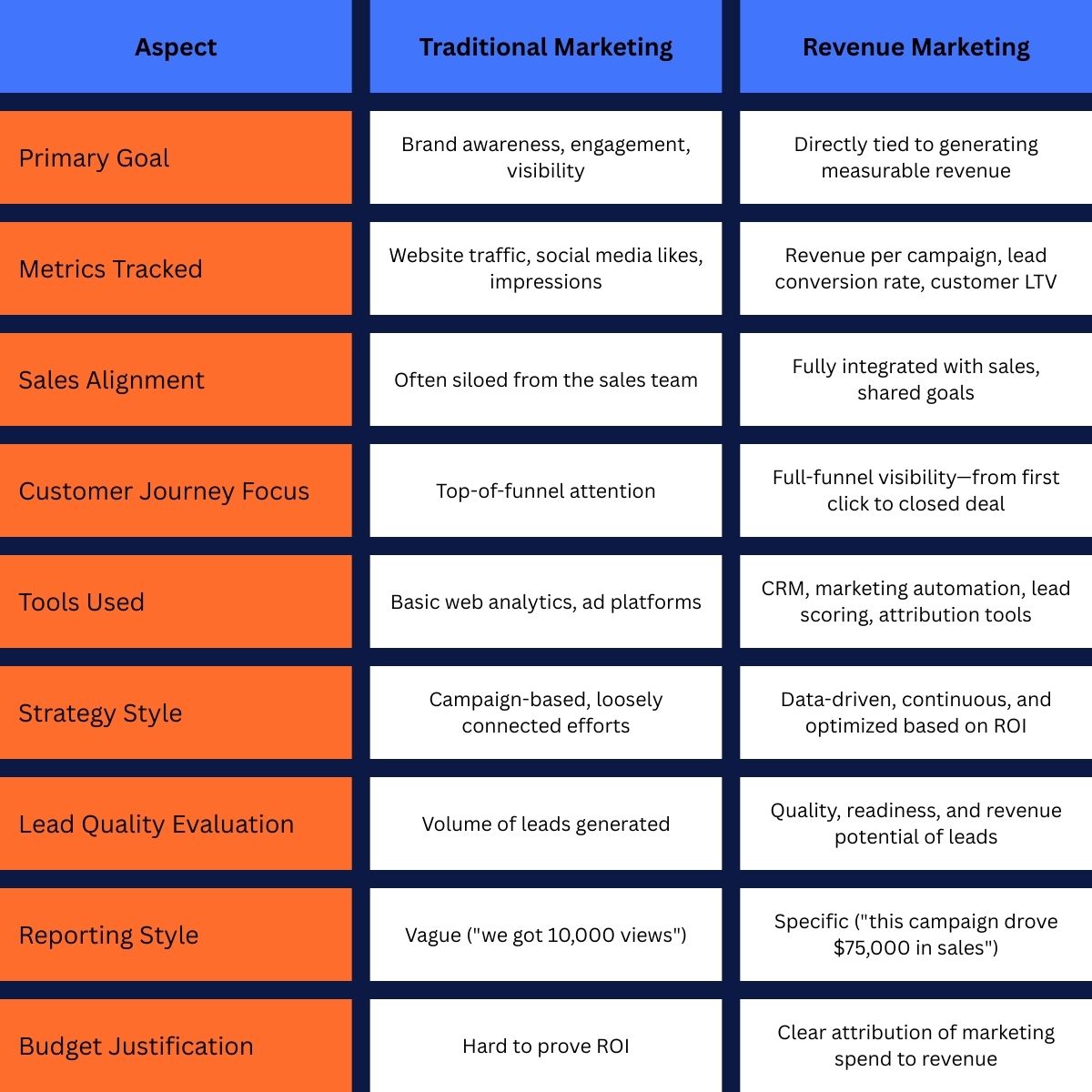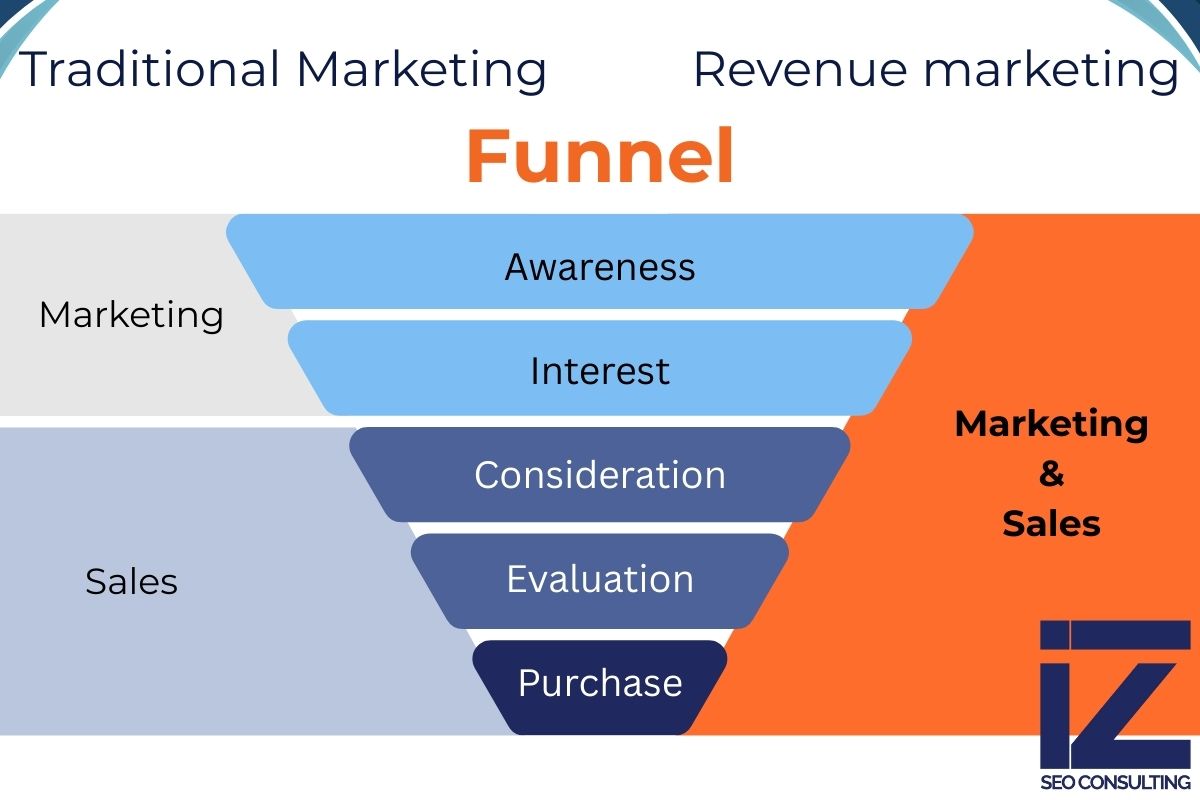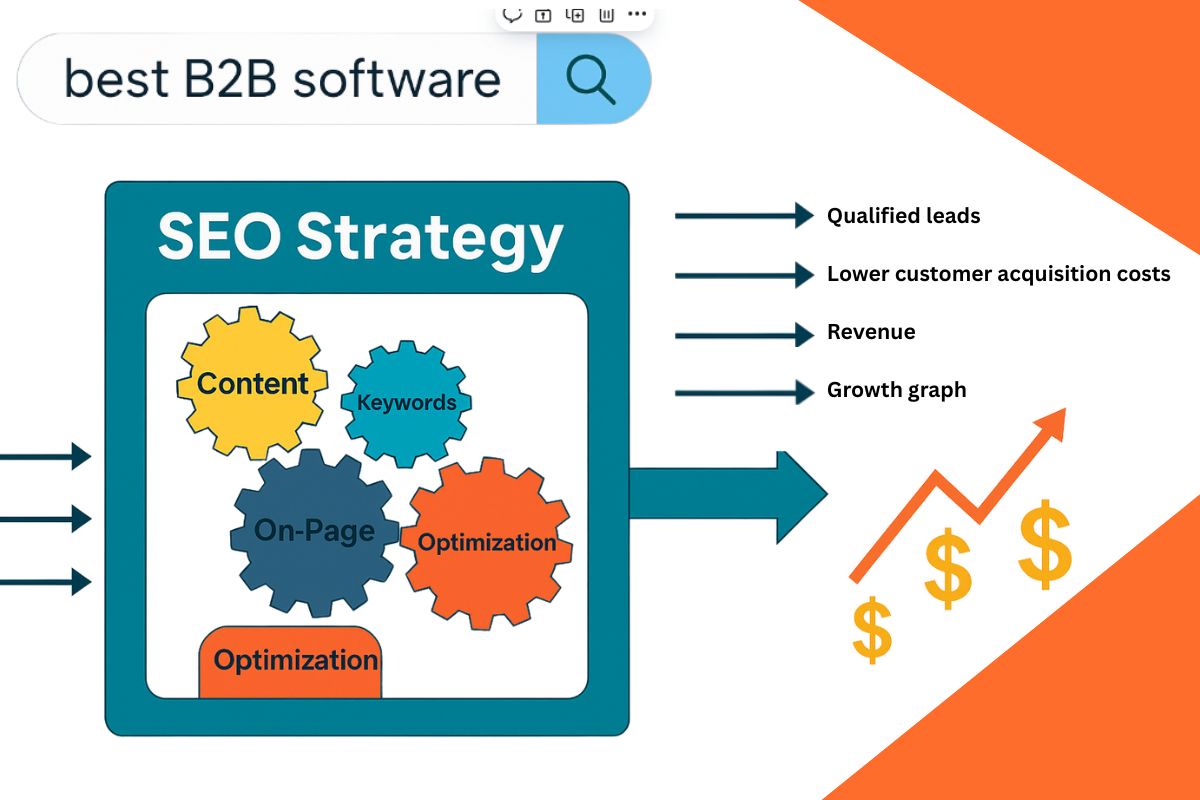Let’s be honest—revenue marketing isn’t just another fancy term that consultants throw around to sound smart. It’s actually a game-changing approach that can transform how your marketing team contributes to your company’s bottom line. Think of it as the bridge between “we got a ton of website visitors this month” and “we made real money.”
So, What Is Revenue Marketing?
Here’s the thing: revenue marketing is marketing with a clear mission. Instead of throwing campaigns at the wall and hoping something sticks, every single marketing move you make is designed to answer one critical question: “Is this going to bring in actual revenue?”
The Revenue Marketing Definition That Makes Sense
When people ask what is revenue marketing, I like to keep it simple. Revenue marketing is the practice of using real data and smart strategies to create predictable income from your marketing efforts. It’s not about getting likes or shares—it’s about getting paid.
This approach brings your sales and marketing teams together under one roof, working toward the same goal: growing revenue. You’ll use tools like automation software, tracking systems, lead scoring methods, and CRM platforms to follow every potential customer from their first interaction with your brand all the way to signing on the dotted line.
How It’s Actually Different From Old-School Marketing
Traditional marketing teams often get excited about things like website traffic, social media impressions, or how much people recognize their brand. Revenue marketing flips the script and focuses on:
- How much money each campaign actually brings in
- How quickly do leads move through your sales process
- What percentage of leads actually become customers
- How much each customer is worth over time

If a marketing tactic doesn’t eventually lead to revenue, it gets the boot.
The Essential Pieces You Need
A solid revenue marketing strategy needs these key components:
- Your sales and marketing teams are talking to each other (revolutionary, I know)
- Complete visibility into what happens from someone’s first website visit to their final purchase
- Proper tracking that shows which marketing efforts deserve credit for sales
- Automation tools like HubSpot, Marketo, or Pardot to keep everything organized
- Content that speaks to people at different stages of their buying journey
Why Revenue Marketing Matters
Here’s the reality: your leadership team wants answers. Marketing budgets are getting questioned more than ever before. Your executives want to know exactly what they’re getting back for every dollar they invest in marketing.
Revenue marketing gives them those answers. It creates a clear line between what your marketing team does and how much money comes in the door.
The Real Benefits You’ll See
- Prove your marketing ROI: No more vague reports about “engagement”
- Get better at predicting sales: Use data to forecast your pipeline accurately
- Work more efficiently: Stop wasting time on tactics that don’t convert
- Unite your teams: Everyone works toward the same revenue goals
Real Examples of Revenue Marketing in Action
A B2B Success Story
Let’s say you run a B2B software company and you’re using webinars to attract potential customers. With a traditional approach, you might just count how many people signed up. But with a revenue marketing strategy, you’d track those attendees all the way through your sales process.
You’d analyze which attendees became customers, where they originally found you, how many times they interacted with your brand, and how long it took them to buy. Then you’d use that information to make your next webinar even better.
Instead of reporting “500 people attended our webinar,” you could confidently say, “Our webinar influenced $240,000 in potential deals and resulted in $75,000 in actual sales.”

That’s the difference between marketing and marketing revenue that actually matters.
Don’t Fall for These Common Myths
“It’s just demand generation with a fancy name.” Not quite. While demand generation is part of the picture, revenue marketing is much bigger. It includes keeping existing customers happy, getting them to buy more, and making sure they stick around.
“You need expensive software to make it work.” Wrong again. You can start with Google Analytics, your existing CRM system, and basic automation tools. Sure, fancy software helps, but having a solid strategy matters way more.
“Only big companies can do this.” Completely false. Any business, from scrappy startups to massive corporations, can benefit from connecting marketing and revenue.
What Actually Makes Revenue Marketing Work
Get Your Teams on the Same Page
Your marketing and sales teams need to agree on some basic things:
- What makes a lead worth pursuing
- When a lead is ready to talk to sales
- What happens after marketing hands off a lead to sales
Track the Metrics That Actually Matter
Focus on numbers like:
- How much it costs to get a qualified opportunity
- How much revenue each campaign generates
- What percentage of leads become customers
- How quickly deals move through your sales process
Stop obsessing over vanity metrics like social media followers or email open rates.
Choose the Right Marketing Channels
Smart revenue marketers don’t chase every new trend. They double down on what works, like:
- Google Search Campaigns (which have a key value proposition of Google Search Campaigns that’s hard to ignore)
- SEO and organic search traffic, especially for specific long-tail keywords
- Retargeting ads that bring back interested visitors
- Account-based marketing for high-value prospects
And they constantly monitor how each channel performs.
Pro Tip: Look Beyond Basic Attribution
Most marketers stop at figuring out which marketing channel gets credit for a sale. The real professionals go deeper and measure influence across multiple touchpoints. They ask questions like:
- How many interactions did it take before someone bought?
- Which interaction had the biggest impact on their decision?
- Where do your most valuable customers spend the most time?
This kind of thinking separates good marketers from great ones.
How SEO Supports Your Revenue Marketing Strategy
Organic search traffic isn’t just about getting your brand in front of more eyeballs. It’s about attracting qualified buyers who are actively looking for what you offer.
A strong SEO foundation supports your revenue marketing strategy by:
- Bringing in visitors who are already interested in buying
- Reducing how much you spend to acquire each customer
- Consistently filling the top of your sales funnel

Working with SEO experts like Indexed Zone SEO helps ensure your content contributes to revenue growth. If you want to grow your brand with SEO, they understand how to align search visibility with actual business results.
Common Questions People Ask
What’s the main goal of a revenue marketing strategy?
The primary objective is to create a direct connection between your marketing activities and actual revenue. Instead of focusing on metrics that sound impressive but don’t impact your bank account, revenue marketing aims to generate measurable business growth through better lead generation, higher conversion rates, and improved customer retention.
Is revenue marketing only for B2B companies?
Not at all. While B2B companies were early adopters, B2C brands can absolutely benefit from aligning their marketing efforts with sales data. This is especially true when you’re using CRM systems, email automation, and behavior-based targeting.
What tools do you need?
It depends on your budget and goals, but here’s the minimum: a CRM system (like Salesforce or HubSpot), marketing automation (like ActiveCampaign or Marketo), analytics tools (Google Analytics is fine to start), and a solid content strategy. More advanced setups might include predictive analytics, lead scoring systems, and multi-touch attribution tools.
How long before you see results?
With the right foundation in place, you can start seeing early results—like better lead quality and clearer pipeline influence—within 3-6 months. Full revenue impact typically takes longer, especially if you have a longer sales cycle.
Can SEO be part of a revenue marketing strategy?
Absolutely. SEO supports the top of your sales funnel by bringing in high-intent traffic. When you integrate it properly with attribution tracking and lead nurturing, it becomes a vital contributor to both your pipeline and closed revenue.
Time to Take Action
Revenue marketing isn’t some optional nice-to-have strategy anymore. It’s become the standard for any business that’s serious about growth.
If you’re still wondering about the basics of revenue marketing, it’s time to start building your foundation. Get your teams aligned, define shared goals, and start measuring what impacts your bottom line.
In today’s business environment, where marketing and revenue are completely interconnected, being vague about ROI isn’t just unhelpful—it’s risky.
Start with a solid strategy. Support it with real data. Optimize everything for revenue growth.
And remember: even companies like Advantage Sales and Marketing generate serious revenue through smart team alignment. Don’t let your competition leave you in the dust.



